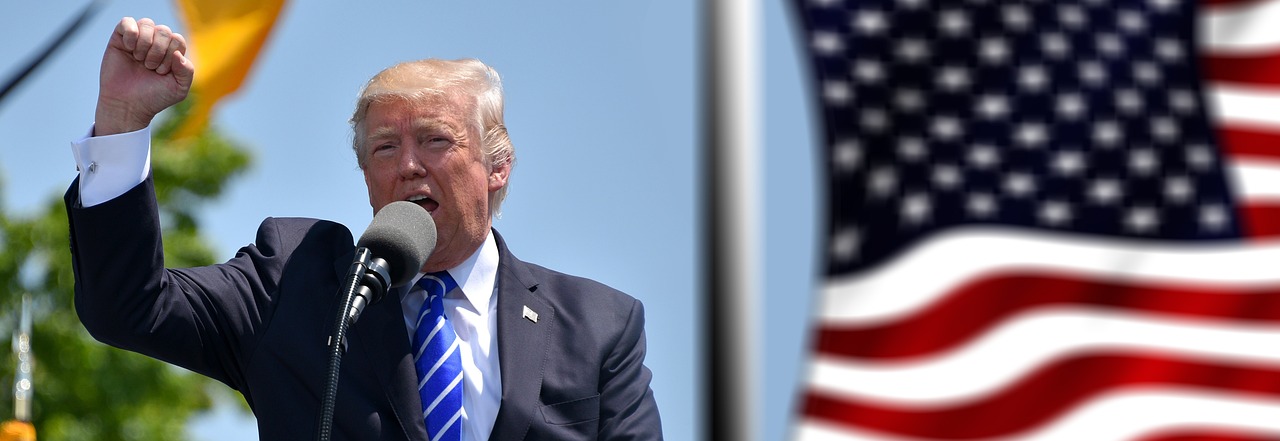President Trump addressed rising U.S.–China trade tensions while en route to Israel, defending his new 100% tariffs on Chinese goods after Beijing imposed rare earth export controls. As China’s exports to the U.S. plunged 27%, Trump assured investors that relations with President Xi would “be fine.” Vice President JD Vance and analyst
President Trump Heads to Israel Amid Rising Tensions
As President Donald Trump traveled to Israel this morning, he addressed the growing trade tensions between the United States and China, saying he remains confident the situation will stabilize. Speaking aboard Air Force One, the President stated, “I think we’re going to be fine with China. I have a great relationship with President Xi. He’s a very tough man, a very smart man, a great leader for their country. And I have a great relationship with him. I think we’ll get it set.”
The remarks came as China reported that its exports to the United States plunged 27% year-over-year in September, even while its global exports reached new highs. In response to Beijing’s newly announced export controls on rare earth minerals and critical technologies, President Trump imposed an additional 100% tariff on Chinese goods, set to take effect November 1. He described China’s move as “hostile” and a “moral disgrace,” signaling a sharp escalation in the economic standoff between the world’s two largest economies.
Beijing has vowed to retaliate if Washington does not withdraw the new tariffs, but President Trump moved to calm investor fears, writing on social media, “Don’t worry about China, it will all be fine. Highly respected President Xi Jinping had a bad moment. He does not want depression for his country and neither do I. The USA wants to help China, not hurt it.”
In an interview on “Sunday Morning Futures,” Vice President JD Vance supported the President’s approach, emphasizing that China’s attempt to weaponize global access to critical resources like rare earths justifies Trump’s declaration of a national emergency. “The fact that the People’s Republic of China has so much control over critical supply in the United States of America—that is the definition of a national emergency,” Vance said. “Unless we have access to this tariff authority, it will be very hard to negotiate with China and to reshore some of the critical supplies and goods that we absolutely need for our own economy.”
Gatestone Institute Senior Fellow Gordon Chang, speaking with Maria Bartiromo, said that relations between the U.S. and China are deteriorating rapidly. While a Trump–Xi meeting is still tentatively expected later this month, Chang questioned whether it would go forward given the latest tensions. “We are seeing a lot of friction inside the Chinese political system, which means nobody in Beijing is willing to make serious concessions to the United States because that’s politically dangerous,” he said. Chang added that Xi Jinping appears “extremely arrogant” and “not clearly in touch with the economic realities” of China’s fragile situation.
Chang also underscored that the United States holds significant leverage over China due to the trade deficit. “We hold most of the high cards,” he said, arguing that China’s overreliance on trade and weak domestic growth give Washington a stronger negotiating position.
Vice President Vance also highlighted the potential for tougher action against Chinese companies listed on U.S. stock exchanges, many of which have ties to China’s military. When asked if the administration would support removing such firms, he said, “The President is open to everything and he’s going to pursue America’s interest decisively.” Vance went on to describe the current supply chain situation as a national emergency, noting that “the rare earth minerals, magnets, silicon chips—we invented in the United States.
Now Taiwan off the coast of China makes 100% of the computer chips in the world economy. We were put in this position by failed leadership. It’s a national emergency, and the President is doing everything he can to get us out of this mess.”
Gordon Chang agreed that the President’s approach was appropriate, saying that the 100% tariff move was “exactly the right tactic.” He estimated that the new tariffs would bring the average duty on Chinese imports to around 155%, effectively cutting off a major portion of bilateral trade. “China right now has been more trade dependent than any other time in its history,” Chang said. “Xi Jinping knows that because his economy’s not growing at the 5.2% pace they claim—it’s more like zero. They need the U.S. market because we account for about 34% of global consumer spending. Although China can divert some exports to other countries, it can’t replace the United States.”
Maria Bartiromo also noted the timing of China’s announcement, coming just as President Trump’s 20-point peace plan was unfolding in Israel. The President is currently in Israel with key advisors, including John Ratcliffe, Stephen Miller, Steven Witkoff, Jared Kushner, and Ivanka Trump. Israeli Prime Minister Benjamin Netanyahu thanked President Trump for his role in securing a ceasefire and a successful hostage release deal, as all hostages have now been freed and are reuniting with their families.
Observers see China’s move to tighten export restrictions as an effort to disrupt the positive diplomatic momentum surrounding Trump’s peace initiative in the Middle East. Nevertheless, the administration appears determined to maintain economic pressure on Beijing while advancing its foreign policy goals.
As global markets watch closely, the weeks ahead will reveal whether China is prepared to engage in a full-scale trade war—or if, as President Trump predicts, the two nations will eventually “get it set.”

